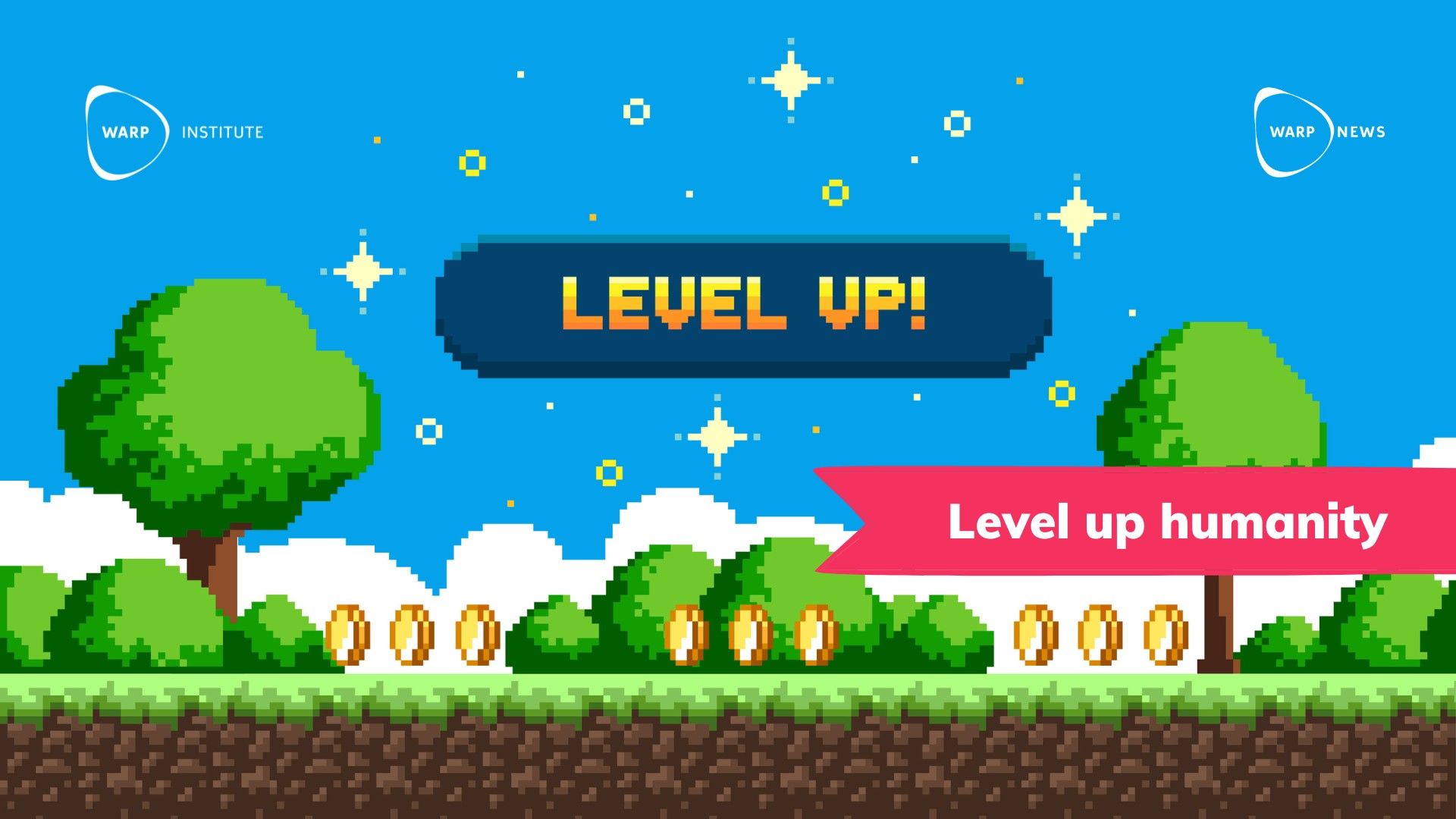
🔮 A look ahead at the 2020s
In the 2010s we did an amazing job of advancing humanity, solving problems, and setting ourselves up for the next round explosive innovation. So what's next? What will we be celebrating on 12/31/29? In this article, I'll discuss some of my personal predictions for what we can expect from the 20s.
Share this story!
We have just wrapped up what I believe to have been the greatest decade in human history. In the 2010s we achieved scientific, medical, and technological breakthroughs across the board that have had a major impact on our daily lives and the effect they have had on humanity is broad. For example:
- Extreme poverty is disappearing. For the first time ever, more than half of the global population is middle class or wealthier. For children being born now, this makes their chance of a good life better than ever.
- More children attend school than ever. They are receiving the education and opportunity to impact the years ahead far more than our current generations can imagine.
- People are living longer. As a result of medical and technological breakthroughs as well as an increased awareness of the importance of personal health, life expectancy across the globe is on the rise. In the 2010s alone, life expectancy has increased by 3 years globally, and as many as 5 years in developing regions such as Africa. Those are big jumps for only a 10 year span of time!
In the 2010s we have done a pretty amazing job of teeing up the things to come.
So what's next? What will humanity be celebrating on December 31, 2029 that we had achieved during the decade of the 20s?
Here are 7 predictions on what we can expect to see in the coming decade.
1. The 5G revolution
5G just launched last year. It won't be widely available until sometime in 2020, but when it does go mainstream, it will transform more aspects of our lives than we can imagine today. For some relative context, in 2010 we were transitioning from 3G to 4G. When 4G was introduced, we were excited for extra-fast downloads and the ability to stream some video content without buffering. Turns out 4G opened up the floodgates for things like smart homes, the social media revolution, city-wide WiFi networks, and work-from-anywhere careers. In the 2010s, broadband access and global internet use increased by 43% and 40% respectively. I believe that during the 20s, those numbers will approach 100% of humanity.
With 5G on the horizon, many telecom experts are heralding its arrival as the advent of the fourth industrial revolution. It will bring about massive changes for both consumers and enterprises. Our devices will become smarter and exponentially faster, the Internet of Things will explode towards its full potential, and medical technologies will empower humanity towards longer and more healthy lives than ever. We will be instantly and personally connectable to any human being on the planet, even more so than today.
2. Smart Assistants will get a lot smarter (and more useful)
Smart assistants like Amazon's Alexa and Google Home are pretty cool. Asking your digital butler to turn on the kitchen lights, remind you to pick up milk on the way home, or schedule that Monday morning meeting are neat features, but let's face it, they are still just novelties in their current state. If you're an owner today, you could probably throw them all in the trash, and it wouldn't cause many setbacks in your day to day routines. However, the technology behind it is truly amazing, and relies heavily on network bandwidth to make things work. Therein lies another leap that will come from the 4G to 5G transition.
First, smart assistants will expand their physical presences. They'll no longer be contained to puck-sized devices or mini touch screens. They'll be in our cars, our shopping centers, even our city streets. The publicly accessible assistants will be available to provide information of any kind to anyone that engages with them. The personal assistants that reside in our homes will also see major advancements:
- You'll be able to name them anything you want. Good-bye 'Alexa' and 'Hey Google'
- They will achieve human level conversational capabilities complete with mood, inflection, and a seemingly genuine interest in talking with you.
- From reactive to proactive. A good assistant will do something when you ask them to. A great one won't need asking. Instead of you setting routines for your device, the assistant will learn your schedules and habits and set its own routines accordingly. It will probably even help you set 'routines' for yourself!
- They may even get bodies! Both Augmented Reality and Robotics are other aspects of technology that are moving very fast. So whether its a hologram walking around the house, or an actual robot, I believe our smart assistants will begin to take physical form.
3. The eradication of diseases
Devastating and fatal diseases like cancer, HIV, Ebola, and many others are on their way out.
The 2018 Nobel Prize in Physiology and Medicine was awarded to cancer immunotherapy researchers, James P. Allison, PhD and Dr. Tasuku Honjo. Allison and Honjo were honored for their work on uncovering ways to activate the immune system to attack cancer, a breakthrough in developing new cancer treatments.
Research such as theirs coupled with technological advancements like CRISPR will finally eradicate diseases that have plagued humanity throughout history. The technology has already been able to eliminate HIV in live animals, and in 2019 a British patient became the second person to potentially be cured of HIV after receiving stem cells from a donor with genetic resistance to the disease.
Vaccinations are being developed (some already approved) for diseases such as Ebola, Malaria, Cancer, HIV, Norovirus, and Zika. There are even two vaccines in the works that treat opioid addictions such as heroin.
Over the next 10 years, advances in medical research, biotechnology, neuroscience, and artificial intelligence will explode, resulting human beings who live longer, stronger, healthier lives than at any time in our history.
4. Gas stations will become obsolete
Electric vehicles began pushing their way into the mainstream during the 2010s. Tesla has become the poster child for electric, autonomous vehicles. However, in 2014, CEO Elon Musk announced that he was "open-sourcing" Tesla's patents. He asserted that doing so would allow the electric vehicle market to grow more rapidly, and that it has. Several major car manufacturers such as Audi, BMW, Ford, Honda, Volkswagen, and many more have models in the pipeline that will put battery-powered cars on the road within the next 5 years.
While EVs face resistance from some, most of the apprehension comes from the safety protocols behind autonomous driving capabilities, rather than source of power itself. Of course, as the technology that enables the autopilot features continues to improve by leaps and bounds in the coming years, the hearts of the vehicles is what will lead to the ultimate downfall of corner gas stations. Quite simply, they will no longer be needed in their current state. At-home and on the road charging stations will replace fossil fuel fill-ups, and many of today's gas stations will have to upgrade to remain relevant.
5. Life on Mars (us)
The exploration of Mars is a hot topic in space circles these days. While the first spacecraft to actually touch down on Mars did so in the 1970s, it was the 2011 launch of the Mars Curiosity Rover that brought the planetary missions back into mainstream interest. It has sent back tons of high quality imagery from the Red Planet and interest is high as it continues to search for signs of previous life. This summer, NASA will be sending a second rover, Mars 2020 off to our closest neighbor. It is expected to land 3,760 miles away from Curiosity to explore a 'landscape shaped by water'.
The next question is, when will humans go there? I believe the answer is soon. Sometime in the 2020s. With today's scientific capabilities, it really isn't that long of a journey. People could make a trip to the planet, stay for a reasonable amount of time, and then return home, all in under 2 years. The trip itself takes about 7 months, as long as departures are timed for when both Mars and Earth's orbits are at their closest. The trip home is similar, making the total travel time 14 months. We Earthlings could stay on Mars for a leisurely 9 months before we risk losing 2 years time on Earth.
This is assuming that there are no enhancements made to such a mission over the next decade, which I find very unlikely. Continued innovations in things like reusable rockets, energy efficiency, and AI-driven computing make the likelihood of a human visit to Mars very high.
6. Tokenize the world!
Bitcoin. Cryptocurrency. Blockchain Technology. In the latter half of the 2010s they began to take a mainstream seat and garner the attention of numerous industries. Banking, real estate, healthcare, even politics, these technologies brought about the idea of tokenization that is set to completely revolutionize the way data is handled and business is done.
The goal of a tokenization platform is to remove any original sensitive payment or personal data from your business systems, replace each value with an undecipherable token, and store the original data in a secure cloud data vault separate from your data environment. For example, when you process a payment using the token stored in your systems, only the original tokenization system can swap the token with the corresponding primary account number and send it to the payment processor for authorization.
Today, innovative companies like this one are making tokenization easier by providing platforms for interoperability and serve as the "rails" on top of which many amazing products will be built.
From traditional assets such as bonds, commodities, venture capital funds and real-estate to exotic assets such as artwork, sports teams, and celebrities, companies across the world are using blockchain technology to achieve the vision of a tokenized world.
7. The renewable revolution
Our focus on renewable sources of energy has been on the rise in recent years. Solar energy has gained a lot of traction and costs continue to decrease. Cost per watt decreased a staggering 80% between 2009 and 2017, making it possible for more people than ever to take advantage of solar power than ever before.
In 2019, renewable energy production in U.K. surpassed fossil fuels for the first time ever. Wind farms, solar panels, and renewable biomass plants contributed in nudging renewable production past fossil fuels.
This trend will grow exponentially over the next decade. In both the private sector and on national scales, renewable energies will become even more cost effective, and the benefits to the environment will become more and more tangibly realized. Global companies and nations are already being proactive towards the renewable push.
- Japan has developed a near $3 billion plan to reconstruct Fukushima as a renewable energy hub.
- Dubai is creating an entire suburb called 'Sustainable City' aiming to become a solar powered 'oasis in the desert.'
- European coal output is in steep decline as major financiers like Goldman Sachs have stated that they will no longer fund new coal projects.
This list is very short compared to all of the amazing advances we will see in the coming decade. Humanity will continue to make big strides forward in the areas of emerging technologies and innovations. Inventions will be made, breakthroughs discovered, the pace of innovation will quicken as more and more ideas are shared. I look forward to reviewing this article 10 years from now and finding out how aggressive or conservative I was in my predictions. In the meantime, onward we go!
By becoming a premium supporter, you help in the creation and sharing of fact-based optimistic news all over the world.


